
According to the Oxford Companion to World War II: “Only Model and Keitel among the German generals rivalled [Ferdinand] Schörner as a devotee to Hitler.” It is probably also fair to say that his devotion to his Führer was matched only by his ruthlessness. A ruthlessness not only unleashed upon the enemy, but also often inflicted on his own soldiers. This in turn led to Schörner drawing much post-war criticism from the very men who fought and suffered under his command.
Schörner’s devotion and brutality were not lost on Hitler, who promoted him to generalfeldmarschall in April 1945, the final such promotion of the war. Hitler seemingly liked Schörner so much that he even went as far as to name him in his will as the new commander-in-chief of the German Army. Later imprisoned by the Soviets for war crimes, Schörner returned to West Germany following an unusual early release, where he found himself convicted of further crimes (this time for actions against his own soldiers) and again imprisoned. Released once more after only a few years behind bars, Schörner would live out his days in his native Munich in virtual obscurity.
More recently, several historians have attempted to portray Schörner as an extremely able commander and organiser, who even acted against Hitler’s orders on occasion. Nevertheless, Schörner rightly remains remembered for being the fanatical Nazi, butcher and war criminal that he was.
Early life and military career
The son of a senior police officer, Schörner was born in Munich in June 1892. His military service commenced in late 1911 when he joined the Bavarian Army, being posted to the Königlich Bayerisches Infanterie-Leib-Regiment, which traditionally acted as lifeguards to the Bavarian monarchy. Shortly after the outbreak of the First World War, he was promoted to leutnant der reserve der infanterie.
This story is from the Issue 137 edition of History of War.
Start your 7-day Magzter GOLD free trial to access thousands of curated premium stories, and 9,000+ magazines and newspapers.
Already a subscriber ? Sign In
This story is from the Issue 137 edition of History of War.
Start your 7-day Magzter GOLD free trial to access thousands of curated premium stories, and 9,000+ magazines and newspapers.
Already a subscriber? Sign In
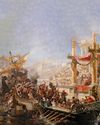
NAUMACHIA TRUTH BEHIND ROME'S GLADIATOR SEA BATTLES
In their quest for evermore novel and bloody entertainment, the Romans staged enormous naval fights on artificial lakes
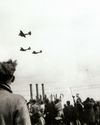
OPERATION MANNA
In late April 1945, millions of Dutch civilians were starving as Nazi retribution for the failed Operation Market Garden cut off supplies. eet as In response, Allied bombers launched a risky mission to air-drop food
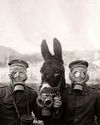
GASSING HITLER
Just a month before the end of WWI, the future Fuhrer was blinded by a British shell and invalided away from the frontline. Over a century later, has the artillery brigade that launched the fateful attack finally been identified?
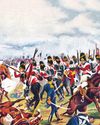
SALAMANCA
After years of largely defensive campaigning, Lieutenant General Arthur Wellesley went on the offensive against a French invasion of Andalusia

HUMBERT 'ROCKY'VERSACE
Early in the Vietnam War, a dedicated US Special Forces officer defied his merciless Viet Cong captors and inspired his fellow POWs to survive
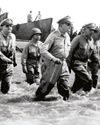
LEYTE 1944 SINKING THE RISING SUN
One of the more difficult island campaigns in WWII's Pacific Theatre saw a brutal months-long fight that exhausted Japan’s military strength

MAD DAWN
How technology transformed strategic thinking and military doctrine from the Cold War to the current day
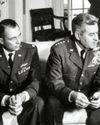
BRUSHES WITH ARMAGEDDON
Humanity came close to self-annihilation with the Cuban Missile Crisis, Broken Arrows’ and other nuclear near misses
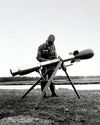
THE DEADLY RACE
How the road to peace led to an arms contest between the USA and USSR, with prototypes, proliferation and the world’s biggest bomb

THE MANHATTAN PROJECT
Einstein, Oppenheimer and the race to beat Hitler to the bomb. How a science project in the desert helped win a war